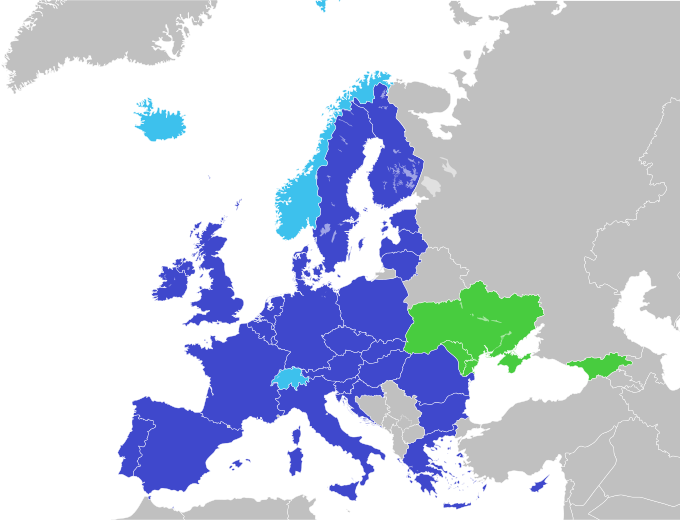 The government has carried out the plans in regard to collaboration with the IMF. The least progress is in the social sphere.
The government has carried out the plans in regard to collaboration with the IMF. The least progress is in the social sphere.
Arseniy Yatseniuk’s Cabinet of Ministers has passed the 100-day barrier, after which the moratorium on the criticism of the government’s work ends. But the majority of the experts surveyed by Forbes are not hasty to make use of this right now. Their verdict: under conditions of war, the Cabinet of Ministers has done everything possible, and it is at least naïve to demand reform, even those they had promised and those that are very relevant.
The roadmap for the new government was initially developed by Pavlo Sheremeta’s institution. The document of the Ministry of Economics was called “100 days – 100 steps of the government” and prescribed a number of means aimed to overcome the crisis in various spheres of the economy. The 45 pages, which took the Ministry about two months to develop, laid out the steps to make state finances “healthier,” form a business climate and for European integration. In the end this document was not passed, and instead the government followed a much more down-to-earth, but more adequate document “Program of Cabinet of Ministers Activity.”
Yaroslav Zhalilo, first deputy head of the National Institute of Strategic Investigation, notes that the government managed the most important task – to provide stability for the national economy which shook under political crisis. In relatively short time the action potential of the main structures of executing government, as well as the functioning of the public utility sphere, infrastructure, fuel and transport, were re-established on most of the country’s territory. “To demand something more substantial, for example, reform, would not be serious,” thinks the expert.
Oleksandr Paskhaver, president of the Centre for Economical Development, is also convinced that the military conditions in the country annul the promises regarding immediate reform: “The complaints that the government of the country did not carry out reform are foolish. I don’t remember anyone carrying out reforms during wartime.” According to him, the government managed the practically impossible task – to find money for war in a pre-default state.
However, the government itself has made the situation in the east of the country more grave and become involved in a long and expensive campaign because of its clumsy action. “The lack to readiness to make operative decisions in the military sphere led to the deepening of the crisis in the east of the country. To my mind, this is the only place where the government was too slow,” says Zhalilo. However, even here critics say that no Cabinet of Ministers was prepared for such a situation.
“The government managed fully in terms of the economy,” Eric Niman, leading partner of Capital Times investment company, is convinced. The Cabinet of Ministers also kept its word in terms of European integration promises – the signing of the political part of the EU Association Agreement was done, and, it is most probable that the economical part will be signed by the end of the year as well.
Niman names the chaotic behaviour of the National Bank on the currency market, which led to disorganisation in this sphere, as one of the weaknesses in the work of the new state managers. Also the government has become too caught up in looking for new sources to fill the budget, having passed normative acts, the effects of which may turn out to be opposite to the desired. “The appearance of the revenue tax on deposits is savagery, which may land a forceful blow to the bank system, when the people really understand what has happened,” thinks Niman and emphasises that emergency changes are necessary in the tax sphere. “Some decisions were made hastily, on the run, it was obvious they were underdeveloped and discordant with business,” says he.
The publicised reform of the state purchase system is another painful issue for Yatseniuk’s team. This document enforced Ministry of Economics Pavlo Sheremeta’s reputation as a brilliant lecturer, but an ineffective government official. The amendments made did not heighten the efficiency of state purchases – even goods for military needs, such as bulletproof vests, are bring bought through a long, bureaucratic procedure. “To claim that the issue of corruption in this law has been solved once and for all, is difficult. We are still coming face-to-face with the insufficient action potential of the state purchases,” thinks Zhalilo. “We made the law completely transparent, but they are still stealing!” this is how one of the Parliament members characterise the new edition of the law.
Sheremeta’s program prescribed to pass the entire normative base necessary for global reform in the first 100 days. The end terms are not mentioned in the final action plan of the Cabinet of Ministers, and the document itself begins with a detailed description of the problem the new team received Ukraine with: the 0% GDP growth in the last two years, the state budget deficit in 2013 – over 80 billion UAH, the remaining funds on the universal treasury account – 4,3 million UAH, the overall state debt as of the end of the previous year – $140 billion, or around 80% of the GDP, the economical, political and social crises in Ukraine are being characterised as “the deepest in the country’s history.”
Forbes analysed what Arseniy Yatseniuk’s Cabinet of Ministers managed to achieve in the first three months of work.
Data: Program of the Cabinet of Ministers’ Activities, rada.gov.ua
Data: Program of activities of the Cabinet of Ministers of Ukraine
Source: Forbes
Translated by Mariya Shcherbinina




